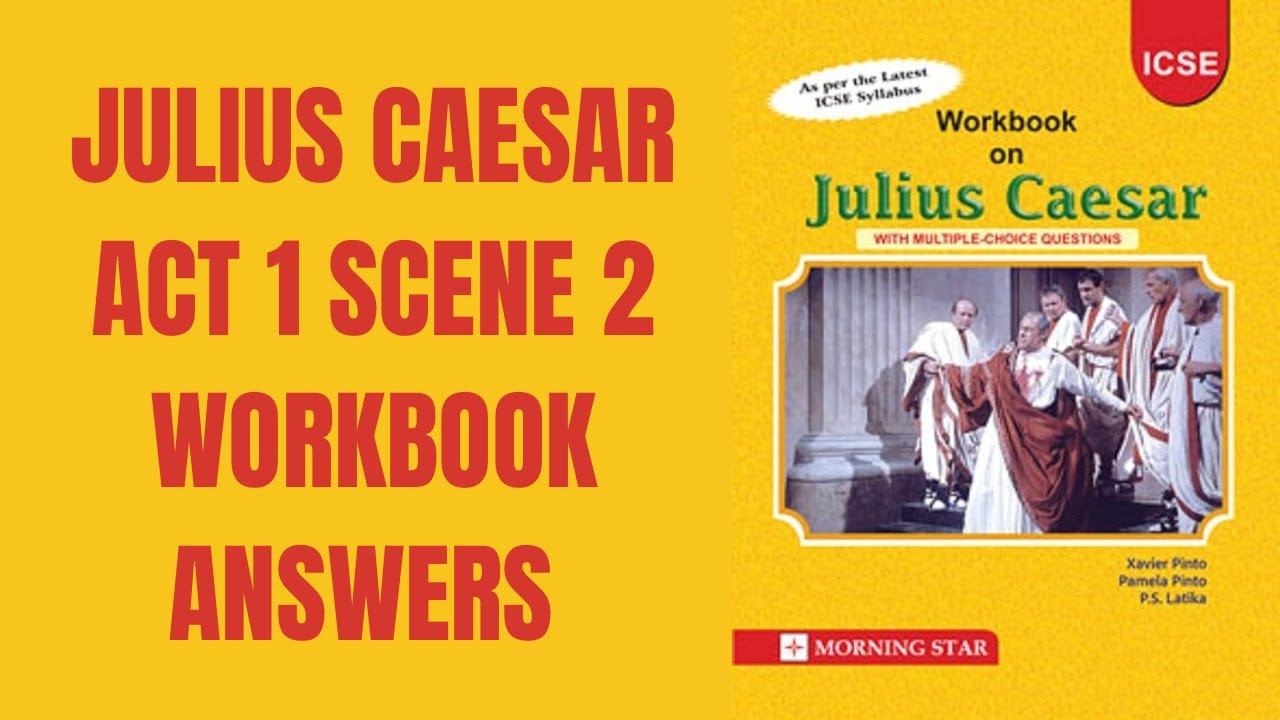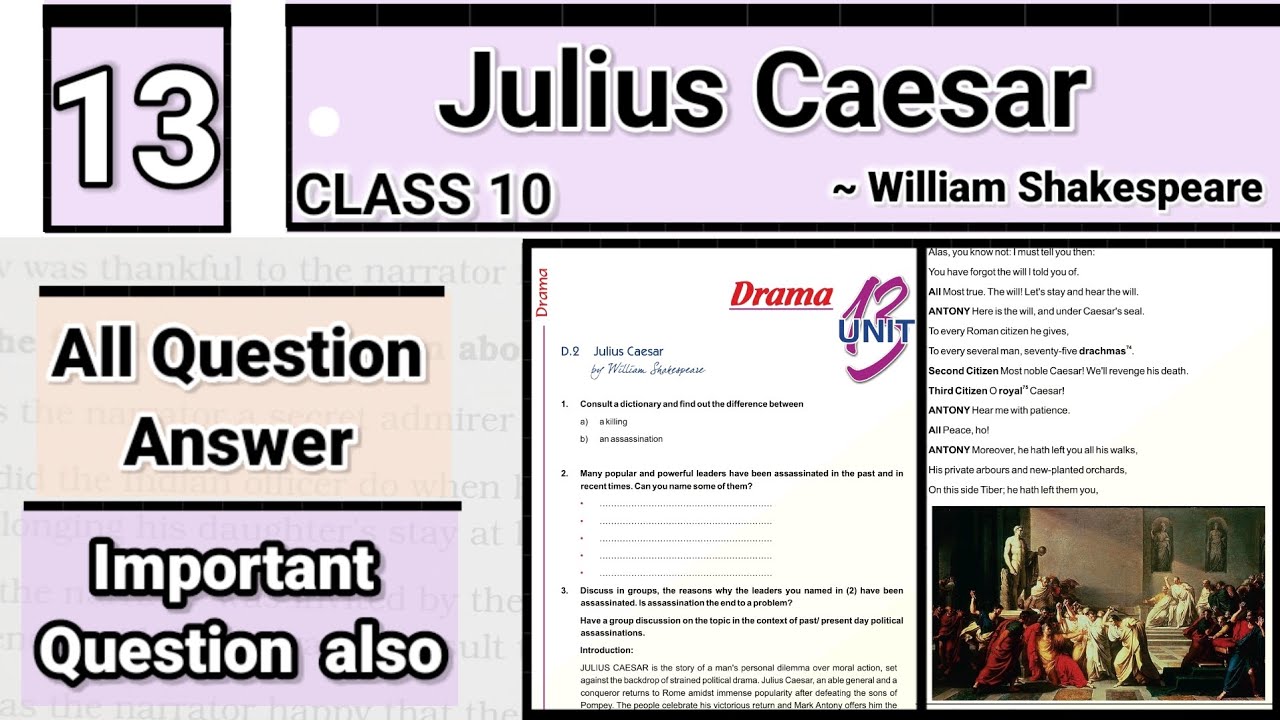Teaching Julius Caesar can be a rewarding, yet challenging experience. Students often struggle with the language, the historical context, and the complex characters.
Understanding the Play: The Short Answer Study Guide
A short answer study guide is a great tool. It helps students focus on key elements. It encourages deeper engagement with the text.
Key Areas to Cover
Focus on character analysis. Ask about Caesar, Brutus, Cassius, and Antony. Explore their motivations, flaws, and relationships.
Examine the themes of the play. Discuss ambition, power, loyalty, betrayal, and fate. Encourage students to provide textual evidence for their answers.
Analyze the use of rhetoric. Pay attention to Antony's funeral oration and Brutus's speech. Discuss how language is used to persuade and manipulate.
Crafting Effective Questions
Use a mix of factual and interpretive questions. Factual questions test comprehension. Interpretive questions promote critical thinking.
Here's an example of a factual question: "Who stabs Caesar first?". This tests basic knowledge of the plot. Another example is "What is the Soothsayer's warning to Caesar?".
Here's an example of an interpretive question: "Was Brutus justified in killing Caesar?". This requires students to analyze Brutus's motivations and evaluate his actions. Another example is "How does Antony use rhetoric to turn the crowd against the conspirators?".
Example Study Guide Questions
Here are some examples. Describe Caesar's character. What are his strengths and weaknesses? What is the significance of the Ides of March?
Analyze Brutus's internal conflict. Why does he decide to join the conspiracy? What are the consequences of his actions? What is his relationship with Cassius?
Explain Cassius's role in the conspiracy. What are his motives? How does he manipulate Brutus? What is his opinion of Caesar?
Discuss Antony's funeral oration. How does he use rhetoric to sway the crowd? What is the impact of his speech? Why does he call the conspirators "honorable men"?
Explore the theme of fate versus free will. To what extent are the characters' actions predetermined? Do they have agency over their own lives? Is Caesar's death inevitable?
Analyze the use of dramatic irony in the play. Where does the audience know something that the characters do not? How does this create suspense?
Addressing Common Misconceptions
Students often misunderstand Brutus's motivations. They may see him as purely noble. Explain that he is complex and conflicted.
Some students may believe Caesar was a tyrant. Emphasize that the play presents a more nuanced view. Discuss his popularity and achievements.
Students may struggle with the language. Provide them with glossaries and paraphrases. Break down complex sentences and phrases.
Making the Play Engaging
Use modern analogies to connect the themes to contemporary issues. Discuss political ambition, betrayal, and the abuse of power.
Incorporate interactive activities. Stage scenes from the play. Hold debates about the characters' actions. Encourage students to create their own interpretations.
Show film adaptations or clips. Compare and contrast different interpretations. Discuss the director's choices and their impact. For example, Kenneth Branagh's version is very popular.
Use graphic organizers to help students track the plot and characters. Create timelines, character maps, and Venn diagrams. Make the play more accessible through visuals.
Tips for Educators
Provide context on Roman history. Explain the political climate and the power struggles of the time. Help students understand the world in which the play is set.
Encourage close reading. Teach students how to analyze the language and imagery of the play. Help them identify key themes and motifs.
Foster critical thinking. Ask open-ended questions that challenge students to think for themselves. Encourage them to support their answers with textual evidence.
Break the play down into manageable chunks. Focus on one act or scene at a time. Provide students with opportunities to discuss and reflect on what they have read.
Be patient and supportive. The language can be challenging. The plot can be complex. Provide students with the resources and support they need to succeed.
Remember to emphasize the importance of Shakespeare's work. Connect it to modern literature and film. Show students that the themes are still relevant today.
Using these techniques and focusing on a short answer study guide will help students succeed. Success means they better understand Julius Caesar. Success means they critically engage with the play.

